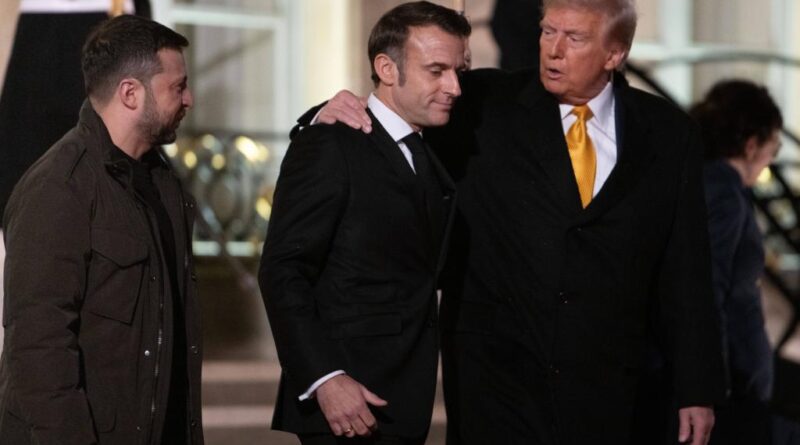Step Up and Stand Your Ground

Europe has faced numerous warnings, yet it continues to struggle.
Currently, it finds itself in a state of near-collapse — prompting tears from at least one German official — due to the Trump administration’s stern criticisms regarding its insufficient military expenditures and its attempts to start independent negotiations with Russia concerning the Ukraine conflict.
In light of this, French President Emmanuel Macron convened an emergency summit of European leaders, although his aides maintained that it was merely an informal meeting hastily put together.
No matter the terminology, there are indications that Europe is starting to understand the gravity of the situation — or, more accurately, beginning to acknowledge a message it has received repeatedly over the years, buried beneath an array of documents that celebrate its perceived soft power.
Back in 2011, a blunt US official cautioned Europe that it faced “a dim if not dismal future” and that NATO was on the path to “irrelevance.”
This forthright individual was none other than Robert Gates, the defense secretary under President Barack Obama.
Having served in the George W. Bush administration, Gates held considerable bipartisan credibility, yet his words resonated similarly to those of Vice President JD Vance and Trump’s Defense Secretary Pete Hegseth.
“The blunt reality,” Gates articulated in his address, “is that there will be dwindling appetite and patience in the US Congress — and in the American body politic at large — to expend increasingly precious funds on behalf of nations that seem unwilling to devote the necessary resources or to make the necessary changes to be capable partners in their own defense.”
Under the second Trump administration, that patience has nearly evaporated.
Serious nations require serious militaries, and a military alliance like NATO relies heavily on the capabilities of its member states.
This is so self-evident that it shouldn’t even need stating, yet it has been an uncomfortable reality for Europe, which has chosen to invest in various other areas while depending on the security and power exerted by the United States.
NATO nations pledged to allocate at least 2% of their GDP to defense back in 2014, yet only 23 out of 32 NATO members have hit this target.
Countries like Poland and the Baltic states are among the highest spenders, while France and Germany barely reach 2%; Canada and Italy fall beneath it.
While there has been an upward trend in spending, it remains insufficient. As reported by The New York Times, “There is consensus among officials and analysts that Europe lacks critical defense elements such as integrated air and missile defense, long-range precision artillery and missiles, satellites, and air-to-air refueling tankers.”
Is that all there is to it?
Trump is advocating for 5% of GDP for NATO members, a tactic seemingly aimed at encouraging Europe to increase spending, even if it doesn’t meet this proposed threshold (the US itself contributes around 3.4%). NATO is set to propose a goal of 3% or 3.5% later this year.
The Trump administration tends to favor a tough approach over a gentle one when making its case globally. While it might come across as unnecessarily harsh, it certainly captures attention.
NATO Secretary General Mark Rutte urged member nations to cease “complaining” and to generate tangible, positive solutions, while European Commission President Ursula von der Leyen emphasized that “Europe’s security is at a pivotal moment” and that an “urgency mindset” and “surge in defense” are essential.
Even if Trump were less forceful about defense spending and held warmer views of the alliance, the fact remains that the United States may soon find itself preoccupied with crisis management in the Pacific, requiring Europe to be self-sufficient in defending its own interests.
If Europe is unwilling to invest more for its own security or for the benefit of the alliance, then at the very least, it should do so out of a sense of dignity once its moment of panic subsides.
Twitter: @RichLowry



